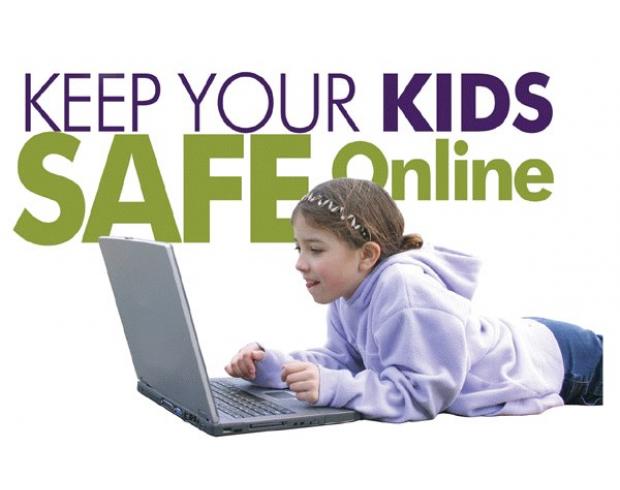*65% of high school students admit to unsafe, inappropriate, or illegal activities online. *38% of high school students hide their online activities from their parents. *Of students aged 13-14 from schools across Alberta, Canada, 90%of males and 70% of females reported accessing explicit media content. *31% of 7th to 12th-graders pretended to be older to get onto a website. *79% of youth unwanted exposure to pornography occurs in the home. *Pornography industry earns more than the combined revenues of top US companies like the Microsoft, Google, Amazon, eBay, Yahoo, Apple, Netflix and EarthLink. (Harris Interactive-McAfee 10/2008) Our children today are living in an era where online activities are an integral part of their lives. Whether it is for fun activities, browsing for additional information regarding school projects or social interaction with friends and family members, the Internet has opened up a whole new spectrum of resources and opportunities for them. In spite of the tremendous benefits associated with the Internet, we must never lose sight of the fact that it can be a dangerous place for children. There is thrill of anonymity, the chance to meet and talk to strangers in chat rooms, make friends online and indulge in little fantasies which their young minds deem harmless and "just a bit of fun." While the above statistics reveal the online behaviour of American and Canadian students, they are indicative of how much risk children can face if parents do not take proper steps to safeguard their safety online. Teaching your children about the safe use of Internet and making sure that they abide by these rules involves a combination of tricks and techniques. Simply lecturing them will not be enough. No matter how much you warn them about inappropriate sites, their natural curiosity will prompt them to venture into dangerous territories. Internet can be highly addictive, luring and enticing young children to withdraw from the real world and lose themselves in cyberspace to experience the forbidden thrill of online gaming, virtual chatting and accessing adult material. Keeping your children safe online can be quite a challenge but nevertheless necessary and essential for their own good. 1) Place the computer in a high traffic area within your home even if you have to move the fridge to your child's room. Placing the computer in a child's bedroom is a major mistake that most parents make. This allows the child unrestricted access to web content and he feels relatively safe to cater to his whims and curiosity especially during the night. 2) Monitor you child's online activities. Ask them about the sites that they enjoy or use for school and fun related activities. Don't rely on their reports only. Check the browser's history by pressing CTRL + H which allows you to check the sites visited for up to 2 weeks. 3) Have full knowledge and control over their online profiles. Don't allow your preteen child to have his/her own email address unless you have the password to their account too. Sit with them as much as you can and take interest in their online activities and guide them to good educational websites. If children want to enter online contests, promotional campaigns or sign up for newsletters from their favorite websites, either set up an account in their name yourself or give your own email address. 4) Warn them about indecent sites and advertisement banners that pop up. Our children are a lot smarter than we give them credit for. It is better to acknowledge and confront thorny issues rather than to ignore and pretend that they do not exist. Explain to your children as rationally as you can that these sites go against our cultural, religious and ethical norms and it is better to steer clear of them. 5) Weigh the pros and cons of social networking sites: Consider the ramifications of allowing your child to become members of sites like Face book, Orkut or My Space. Do they really need to be a part of these websites? What sort of personal information will they end up sharing? Is it really true that strangers will not be able to access this information? Put your foot down firmly if you feel uneasy. Beside privacy issues, surfing these websites can consume a lot of their time that can be better spent on studying and playing sports. 6) Have Internet usage rules: Explain to your children that they must never give away their real name, age, location, telephone number, names of parents, teachers and school to virtual strangers. They should never upload their own or family photos without your knowledge or consent. Video content sites like You Tube should also be on your restricted list unless you are sitting alongside. 7) Install parental control software: If your children are proving to be rebellious about their choices, software such as Net Nanny and Cyber Patrol allows you to determine what Internet content reaches your children. These soft wares are not always very reliable because research shows that 11% of children know how to unlock or disable parental/filtering controls. No amount of technology can replace your own vigilance and care. 8) Look for behaviour changes: If your child starts spending excessive time online, especially at night, seems withdrawn, worried or guilty, has more money than he should or keeps on asking for more, then these are signs of something terribly wrong. Your child has either unwittingly fallen victim to some online predator or he may be a perpetrator himself. Do not allow young children, under any circumstances to play with web cams. Always be vigilant and confront your child as soon as his behaviour undergoes any change. 9) Learn Internet basics: With new technologies being introduced at a rapid pace, parents sometimes feel overwhelmed. If you are not computer savvy, enlist help of those who are. Learn the basics of the Internet if you have to, so that your children do not become smug or complacent. 10) Be approachable: Your best line of defense against the downside of the Internet is your own bond of trust, friendship and communication with your children. If curiosity can kill the cat that has nine lives, imagine where it could lead your child. If your child asks a question that you deem improper, handle it calmly. Remember that children today are exposed to a lot of adult material via cable, advertisements and the Internet. It is best that they approach you rather than type their query in Google Search box
2014-04-18 05:06:22
*65% of
sign in to comment
Be the first to comment





